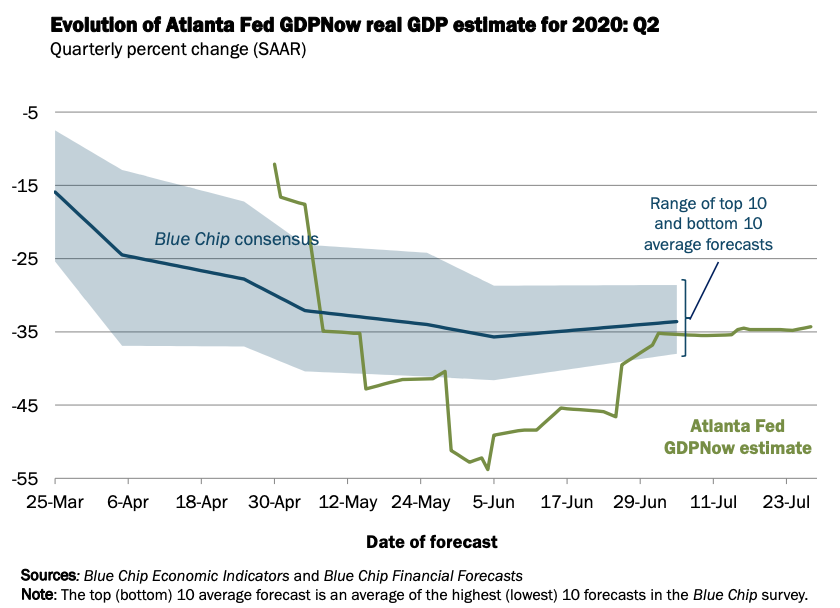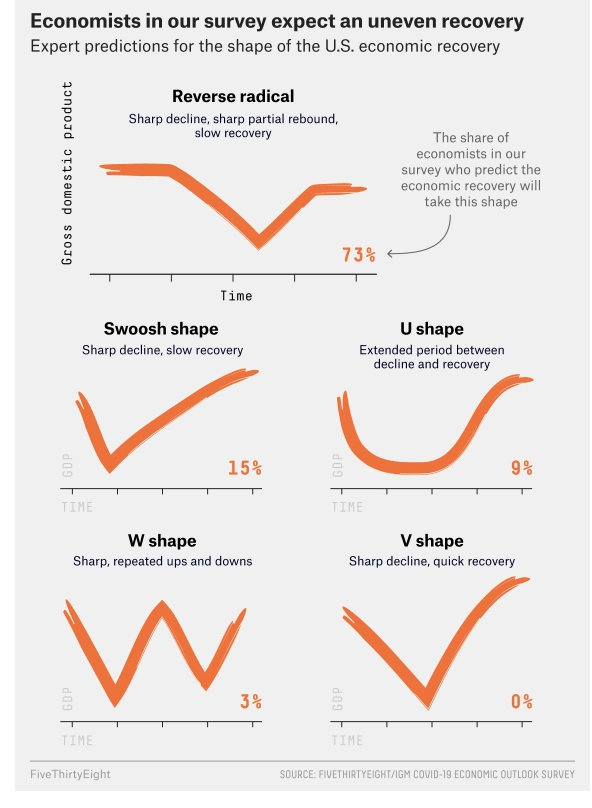Many are doing more with less, while living through the global, systemic retreat from “life as we knew it”, induced by a virus we cannot see. For some, though, doing the “same with less” is now their life’s maxim, having accepted substantial pay cuts to remain employed during the current economic upheaval.
As Megan Casella of Politco writes:
Now, with the virus raging and the recession deepening, those cuts that were meant to be temporary could turn permanent — or even pave the way for further layoffs. That could portend deep damage to the labor market and the economy because so many workers who have kept their jobs have less money to spend than a few months ago.
July 19, 2020
The numbers of workers accepting reduced wages, preferring any paycheck to no paycheck, is extensive in the U.S. workforce:
…at least 4 million U.S. workers have received pay cuts since February even as they continued working the same job, and millions more have seen pay freezes, according to economists from the Federal Reserve and University of Chicago who put out a study analyzing data from the payroll processing company ADP.
Other estimates put it higher: Roughly 7 million workers have likely received a dock in pay, according to Mark Zandi, the chief economist at Moody’s Analytics.
Politico, July 19, 2020
Like the aftershocks of a primary earthquake, a permanent wage reduction will inevitably exacerbate economic problems through a self reinforcing mechanism delaying any meaningful economic recovery.
And smaller paychecks, even in the short-term, lead to less spending, extending any recession.
“The speed of a recovery is really directly aligned to how consumers are behaving,” said Jane Oates, a former Labor Department official who is now president of the nonprofit WorkingNation. “And if people don’t have money, they’re not spending it.”
Politico, July 19, 2020
The economy through the second quarter is expected to decline precipitously.

Although job outlooks have recovered somewhat since the first quarter, there’s still much economic damage done with subsequent negative effects in labor markets not seen since The Great Depression. Indeed, college grads for the next few years will face a difficult job market.
Furthermore, new college grads may believe they have fewer job opportunities concomitant to their training and education, so will settle for whatever job they can get.
The [pay cutting] trend also suggests that employees feel they have no better options than to accept less money for the same work. Americans believe they have a less than 50 percent chance of finding a new job within three months if they became unemployed today, according to a New York Federal Reserve survey — a drop of more than 16 percentage points from a year ago.
Politico, July 19, 2020
Additionally, if those already employed are taking pay cuts, then the newest professionals, AKA college graduates, if they are hired, may start a lower salaries. And, as we discussed in Delayed Economic Vitality and Middle Class Erosion Set to Continue, the youngest adult employees may earn less and thus accumulate less wealth over their lifetimes, as their beginning salaries are less in comparison with previous generations at the same age.
Although economists and economic pontificators may disagree on the shape of the eventual economic recovery, U, W, V, L or Nike Swoosh, the struggle for the generation, college grad or otherwise, about to enter the workforce, may continue for years to come.

Will members of Generation Z, having followed the rules over a lifetime, in order to reach the promised land of economic prosperity equal to or greater than generations prior, now finding themselves lost in an increasingly hostile economic landscape, begin to doubt the path they chose and even, whether valid or not, blame others for their circumstances to which they seem at least for today to have no control?
For more information about how to navigate the complex college admissions process to prepare any student for the challenging labor market, check out Creative Marbles Consultancy



